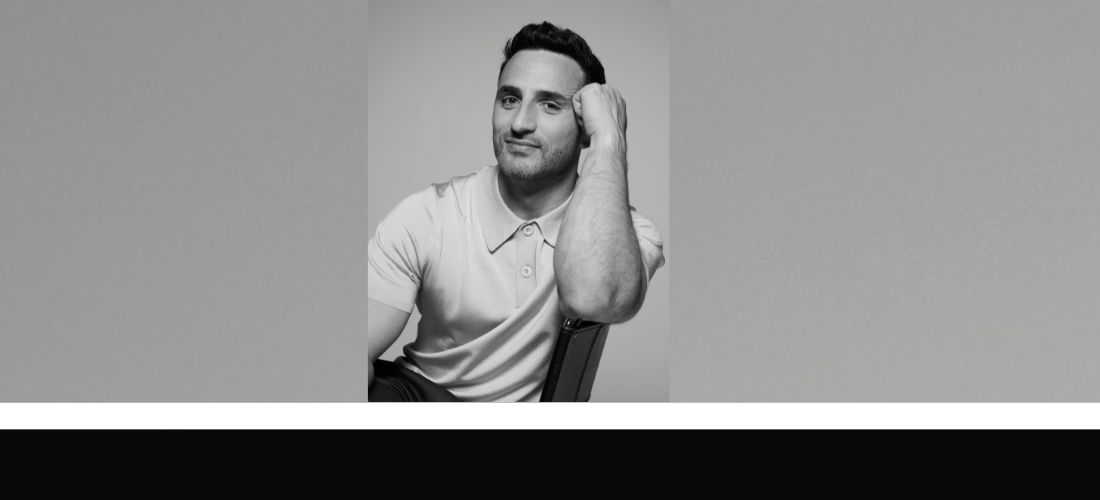Diego Ávalos is the Vice President of Content for Netflix in Spain, Portugal, and the Nordics. His passion for connecting content with technology led him to join Netflix over 9 years ago. Previously, Diego led Yahoo’s business and content development for the Hispanic market in the U.S. and Latin America. He started his career at Deloitte after graduating from Santa Clara University, and holds an MBA from the Kellogg School of Management at Northwestern University.
Diego is committed to promoting diversity, innovation, and quality in the projects Netflix develops. Thanks to Diego’s passion for producing content in Spanish, Netflix released its very first non-English language original series in 2015: Club de Cuervos (Club of Crows). It was a massive success and launched Netflix’s thriving non-English language original series programming.
Currently, he is one of the executives responsible for leading Netflix’s global strategy for Spanish-language and non-English language content.
Can you recommend one book, one podcast, and one online course for entrepreneurs?
- Reid Hoffman’s Masters of Scale podcast, brings together remarkable leaders from many industries. Reid does an unbelievable job curating interview segments with lessons for entrepreneurs and intrapreneurs. The podcast gives me actionable, practical, and timely ideas and inspiration that I can apply to my team and to Netflix.
- The Infinite Game by Simon Sinek is a book I highly recommend to entrepreneurs. Particularly helpful are the concepts of 1) worthy rival, which helps reveal weaknesses that become opportunities for constant improvement, and 2) a just cause, which helps in defining a cause that employees can rally behind.
- Stanford Graduate Business School LEAD program is a well-rounded program that
provides tools, knowledge, techniques, methods, and a community to help you go beyond the basics and bring disruptive strategies, creativity, and innovation to your organization.
What would you say are the top 3 skills needed to be a successful entrepreneur, and why?
- Patience and resilience: entrepreneurship is a hard and long road. It requires creativity, boldness, and humility to pivot to find a successful path. Patience and pivoting build the “muscles” of the skills and traits you need to succeed.
- Ambition: you have to aim to be and to achieve something big, otherwise the chances of getting there are very slim.
- Storytelling: great storytelling helps to sell ideas to your team, investors, and customers. A great entrepreneur must be able to connect with the various audiences she or he has to get on board, and there is no better way than through stories.
What is your favorite quote?
“Good, better, best. Never let it rest. ‘Til your good is better and your better is best.”
– St. Jerome
If you only had $1000 dollars to start a new business, knowing everything you know now, how would you spend it?
I would spend the money networking with people over coffees, lunches, and drinks. I would be strategic and reach out to people outside the start-up/entrepreneurship world or the industry of my new venture. It is critical to avoid the risk of echo chambers and to expand your network beyond the obvious people and companies.
What helps you stay driven and motivated to keep going in your business?
Seeing the enjoyment that our Netflix members get when they watch a movie, series, documentary, or reality show that we launch. I consider myself lucky to work at a company where the impact of your work and interaction with members is immediately visible. It is also always a lot of fun to be able to connect with people I meet about what Netflix shows they’re watching.
How do you personally overcome fear?
The first step is to face and tackle whatever is triggering the fear. You have to look at it directly and honestly. Next, acknowledging that fear itself is an internal and not an external reaction, I take the time to analyze the source of the fear. Is it because I have failed in something similar in the past? A source of insecurity? Conflict avoidance? Am I rehearsing disaster and getting in my own way? Once I identify the source, I break down the issue into manageable pieces. When I am unable to do so, I give it some time. I focus on what is the worst possible outcome, and on what are the true and realistic downsides to that outcome. Usually, I come to the realization that it is indeed manageable, and then dig in.
Tell us briefly about your background and how you started your company.
Since early in my life, I have been passionate about entertainment, technology, and sports. I rowed crew in college, and then competed in marathons, Ironman races, and distance cycling over the years since. I had the opportunity and privilege to join Netflix over 9 years ago. A year earlier, the company took the bold step to launch original series, which changed the trajectory of our business. When I joined, we had just launched season 2 of Orange Is The New Black and were about to cross the 50 million member mark. (For context, Netflix now has over 238 million subscribers). Erik Barmack, now CEO of Wild Sheep Content, and I shared a passion for non-English language story telling and decided to produce the first non-English language series, Club de Cuervos (Club of Crows), about a fictional Mexican soccer team and the exploits and adventures of the players.
The huge success of the series led us to start a division solely focused on non-English content, which now produces hundreds of titles (film, series, reality, and documentary) a year in many countries around the world.
What valuable advice would you give new entrepreneurs starting out?
Act now and figure out the details later. The first step is key because it starts the engine of momentum. If you try to figure out all the details before, you will never get started. Like Reid Hoffman says, “Starting a company is like jumping off a cliff and assembling a plane on the way down.”
What is your definition of success?
Doing meaningful work with people I respect and enjoy while being present and active with family, friends, and my community.
Who should we interview next and why?
Kevin Marra, Founder & CEO of Nemawashi. He can be very helpful to founders who are thinking through exits and selling their businesses.
What are you learning now? Why is that important?
I am learning how to be a working father and the ebb and flow of career and family. Acknowledging that balance is not something to aim for but rather to adjust to the different demands at different periods helps me to be more fulfilled and present.
What were the top three mistakes you made starting your business, and what did you learn from them?
- Too much focus on scaling: If you have seen success with your product, it is easy to fall to the pressure or ambition of scaling fast. If you focus only on scaling quickly, you can easily miss shifts in the market in which you operate or changes in the competitive landscape. Having blinders on like this makes it harder to pivot, which is essential for growing a successful business.
- Hiring too late and for short-term gains: Focus on hiring early and for the future. By doing this, you will avoid distractions from where the business truly needs you and avoid bloating the company in areas not needed.
- Not seeking enough help or advice: It is harder to fall into confirmation bias if you have help, advice, and feedback from outsiders. They will challenge you and force you to find solutions or acknowledge problems with your product that you might be too passionate to see or accept.
How can readers get in touch with you?
Send me a message through LinkedIn. Please make sure you provide context and what you are looking to achieve through our connection.








